
PUMPA - SMART LEARNING
எங்கள் ஆசிரியர்களுடன் 1-ஆன்-1 ஆலோசனை நேரத்தைப் பெறுங்கள். டாப்பர் ஆவதற்கு நாங்கள் பயிற்சி அளிப்போம்
Book Free DemoVitamin B:
Vitamin B plays an essential role in the maintenance of good health and well-being. It is a group of vitamins that includes vitamin B1, vitamin B2, vitamin B3, vitamin B5, vitamin B6, vitamin B7, vitamin B9, vitamin B12, etc. These are collectively called complex vitamins.
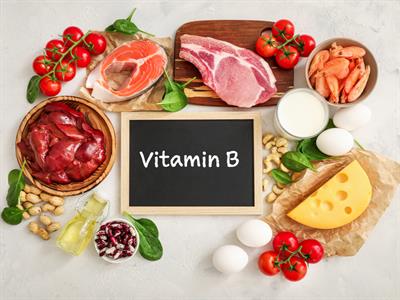
Sources of Vitamin B complex
The deficiency symptoms of vitamin B include fatigue, tiredness or weakness, nervous weakness, anaemia, and numbness. They are essential for brain function and in cell metabolism.
Vitamin B plays a vital role in a healthy nervous system, the formation of red blood cells (RBCs) and for good skin. They are cofactors for enzymatic reactions that drive metabolic processes. They are essential to life and must be consumed through the food sources that contain them.
There are 8 different types of B vitamins. The types include:
1. Vitamin B1:
Vitamin B1 is also called as thiamine. They are found in various products like whole grains, yeast, eggs, pork, liver, spinach, sprouted pulses, red meat, cauliflower and nuts. Symptoms of Vitamin B1 deficiency include memory problems, fatigue, insomnia, degenerative changes in the nerves, muscle weakness and may also lead to paralysis.
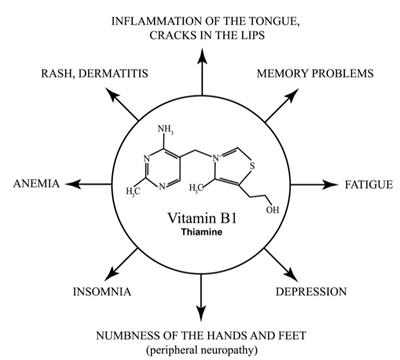
Symptoms of Vitamin B1 deficiency
Vitamin B1 deficiency causes Beriberi.
2. Vitamin B2:
Vitamin B2 is also called riboflavin. They are found in foods like milk, eggs, liver, whole grains, green leafy vegetables. The symptoms of Vitamin B2 deficiency include irritation in the eyes, dry skin, inflammation of lips, fissures in the mouth corners. Vitamin B2 deficiency causes Ariboflavinosis (Cheilosis).
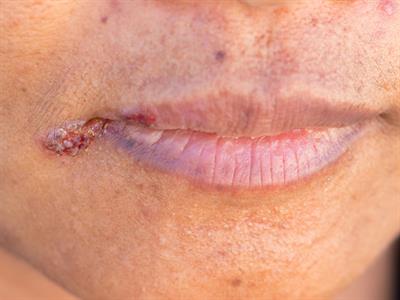
Cheilosis - corners of the mouth being inflamed due to Riboflavin deficiency
3. Vitamin B3:
Vitamin B3 is also called niacin. They are found in various food sources like milk, eggs, liver, lean meat, groundnuts and bran. The symptoms of vitamin B3 deficiency include inflammation of the skin, loss of memory, and diarrhoea. Vitamin B3 deficiency causes pellagra.
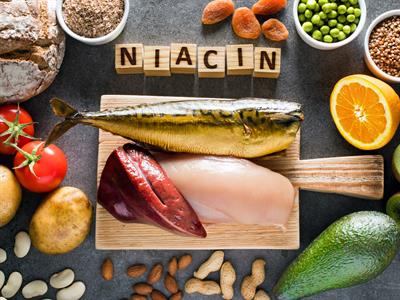
Vitamin B3 sources
4. Vitamin B5:
Vitamin B5 is also called pantothenic acid. They are found in a variety of food sources like milk, eggs, nuts like groundnuts and cashew nuts, brown rice, lentils, soya beans, and broccoli. The symptoms of Vitamin B5 deficiency include irritability, fatigue, muscle cramps, numbness and burning sensation in hands or feet. Vitamin B5 deficiency causes paresthesia.
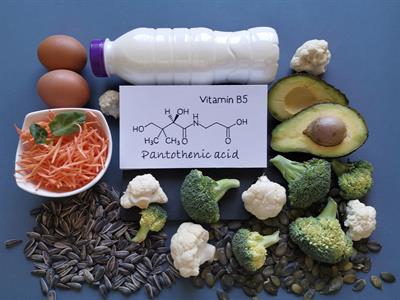
Vitamin B5 sources
5. Vitamin B6:
Vitamin B6 is also called pyridoxine. They are found in food sources like meat, eggs, fish, germs of grains and cereals, rice polishings. The symptoms of vitamin B6 deficiency include scaly skin and nervous disorders. Vitamin B6 deficiency causes dermatitis.
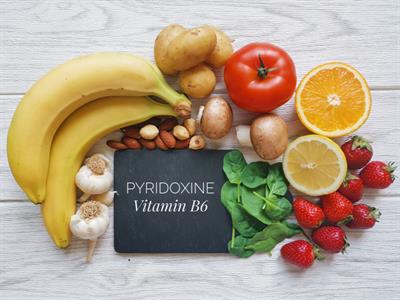
Vitamin B6 sources
6. Vitamin B7:
Vitamin B7 is also called as biotin. They are found in sources of food like soya beans, oranges and strawberries. The symptoms of vitamin B7 deficiency include brittle nails, fatigue, depression, hair loss. Vitamin B7 deficiency causes alopecia and enteritis.
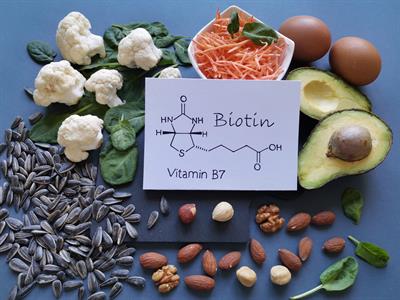
Vitamin B7 sources
7. Vitamin B9:
Vitamin B9 is also called as folate or folic acid. It plays a vital role in the fetal nervous system and brain development. It is mainly found in cereals, spinach, dates, avocado, orange juice, beets and bread. The symptoms of vitamin B9 deficiency includes fatigue, weakness, pale skin, shortness of breath, and lethargy.
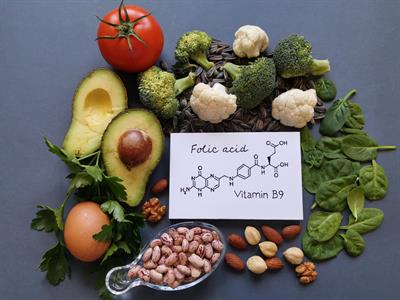
Vitamin B9 sources
Vitamin B9 deficiency causes anaemia in adults.
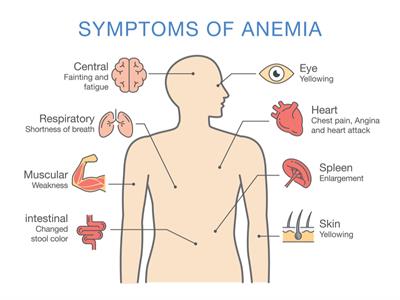
Anaemia deficiency symptoms
Deficiency of B9 in pregnant women can lead to complications during pregnancy.
8. Vitamin B12:
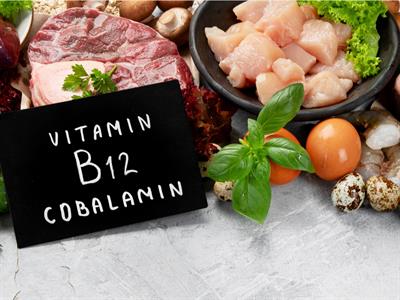
Vitamin B12 sources
Vitamin B12 is also called cyanocobalamine. They are found in food sources like milk, meat, pulses, cereals, liver, and fish. The symptoms of vitamin B12 deficiency include decreased production of red blood cells, pale skin, mood changes, fatigue, and degeneration of the spinal cord. Vitamin B12 deficiency causes pernicious anaemia.
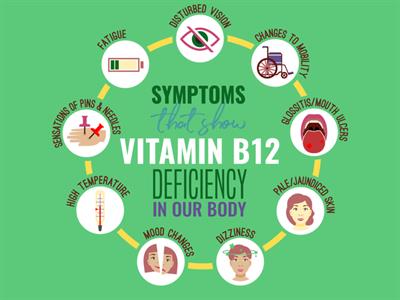
Vitamin B12 deficiency symptoms
Pernicious anaemia is caused when the body cannot make healthy blood cells as it does not have enough vitamin B12. The disease causes the body's inability to use vitamin B12 properly for the development of red blood cells. Mainly it is caused due to the lack of gastric protein called intrinsic factor, without which vitamin B12 is not absorbed.